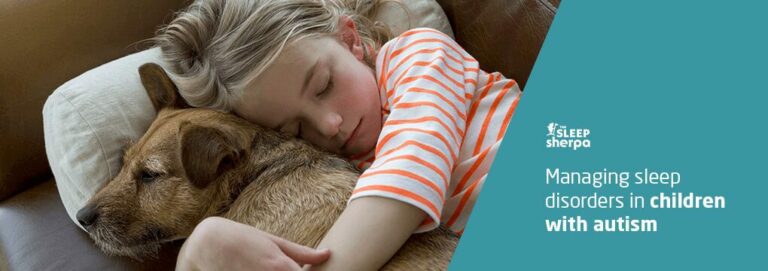Managing Sleep Disorders in Children with Autism
Parents of children with autism often face nightly challenges when it comes to sleep. Managing sleep disorders in children with autism spectrum disorder (ASD) is a prominent concern that affects not only the child but also the entire household. Sleep difficulties can leave children feeling irritable and exhausted, leading to heightened stress for the entire family. Understanding these challenges can arm parents with the necessary tools to help their children achieve better sleep and improve overall family dynamics.
Understanding Autism Spectrum Disorder
Autism spectrum disorder is a developmental condition that varies widely among individuals. Characterized by difficulties in communication and social interaction, the symptoms typically manifest between ages one and two. While some children may exhibit subtle symptoms, others may show pronounced signs that impact their daily lives. Key indicators of autism include:
– Lack of response to their name
– Resistance to physical affection
– Limited emotional expression or eye contact
– Difficulty in initiating or maintaining conversations
– Challenges with following instructions or interpreting nonverbal cues
– Disruptive or aggressive behavior in social situations
– Coordination issues
– Repetitive motions such as rocking or spinning
– Self-harm behaviors like head-banging or biting
– Strong preference for specific routines and aversion to changes
Although there is currently no cure for ASD, early intervention with appropriate therapies can significantly enhance daily functioning and overall quality of life.
Sleep Disorders in Children with Autism
While sleep disturbances are common among children, they become more complex when autism is involved. These disorders can include:
– Irregular sleep patterns, such as staying awake late or waking too early
– Insufficient sleep for their age
– Night-time awakenings for play or noise-making
– Excessive daytime sleepiness
– Falling asleep in unconventional places and difficulty moving to their bed
Children with autism often require reassurance and may disrupt the sleep of parents and siblings. This creates a cycle of stress that can be daunting for families.
Causes of Sleep Disorders in Children with Autism
Understanding the origins of sleep disorders in children with autism is crucial for effective management. The challenges can stem from several underlying factors:
Difficulty in Communication
A significant barrier for children with autism is their struggle to articulate their needs. This communication deficit can create anxiety, preventing them from relaxing enough to sleep. Stress and frustration may result from their inability to understand or express themselves.
Importance of Routine
Routines are vital for children with autism. Irregularities can lead to heightened anxiety and difficulties settling down for sleep. Many children may have specific preferences for where and how they sleep, and deviations from these habits can trigger distress.
Hyperactivity
Hyperactivity is another hallmark of autism. Children may display boundless energy, making it hard for them to wind down at night. Activities like jumping, spinning, or engaging in repetitive behaviors can impede their ability to stay still and transition into sleep.
Medication Side Effects
Some children with autism may be prescribed medications that, while necessary for managing symptoms, can also lead to sleep issues. If your child experiences sleep disturbances that seem linked to medication, consult with your healthcare provider for possible adjustments.
Strategies for Managing Sleep Disorders in Children with Autism
Addressing sleep problems in children with autism may require tailored strategies. Here are several effective techniques to consider:
Develop and Stick to Sleep Routines
Creating a calming bedtime routine can significantly improve sleep quality. Engage your child in soothing activities—like reading or quiet play—30 minutes before the designated bedtime. Consistency in bedtimes and wake times is essential for establishing a healthy sleep rhythm.
Provide Warnings Before Bedtime
Preparation is key for children with autism. Inform them in advance when bedtime is approaching to help lessen anxiety about transitions. Gradually introduce changes instead of making sudden announcements about bedtime.
Patience and Consistency
Reinforcing bedtime expectations involves repeatedly guiding your child back to bed if they get up. Demonstrating persistence and patience is crucial; return them to bed gently, fostering an understanding that it is time to sleep.
Optimize the Sleep Environment
Creating an ideal sleep setting can make a significant difference. Adjust the lighting and reduce noise to promote relaxation. If your child has particular sleep aids or routines, gradually help them learn to sleep independently while phasing out excessive reliance on specific items.
Conclusion
Managing sleep disorders in children with autism is an ongoing journey that requires patience, understanding, and effective strategies. It’s crucial for parents to recognize and address their children’s unique needs while fostering an environment conducive to restful sleep. While some challenges may persist into adulthood, with consistent effort and professional guidance, both children and their families can experience improved sleep patterns and quality of life. By prioritizing solutions and nurturing routines, parents can create a more harmonious home environment that enables their children to flourish.













